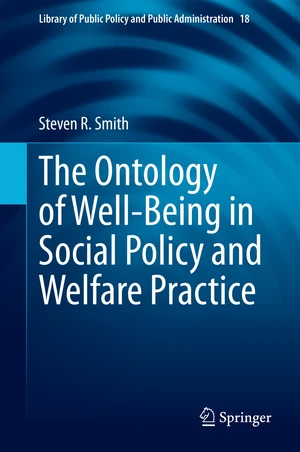This book provides important philosophical insights concerning the kind of creatures we are such that we can experience something we understand as well-being, with these insights then being applied to various areas of social policy and welfare practice. The author defends what he calls The Ontology of Well-Being Thesis (TOWT), addressing ontological questions about the human condition, and how these questions are fundamental to issues concerning what we might know about human well-being and how we should promote it. Yet, surprisingly, these ontological questions are often side-lined in academic, political, and policy and practice based debates about well-being. Addressing these questions, head-on, six features of the human condition are identified via TOWT: human embodiment, finiteness, sociability, cognition, evaluation, and agency. The main argument of the thesis is that these features reveal the conflicting character of human experiences, which can, in turn, have a profound bearing on our experience of well-being. Notably, it is our conflicting experiences of time, emotion, and self-consciousness, which can potentially help us experience well-being in complex and multi-dimensional ways. The author then applies these insights to various social policies and welfare practices, concerning, for example, pensions, disability, bereavement counselling, social prescribing within health settings, the promotion of mental health, and co-production practices. This book is of importance to philosophers, social policy analysts, and welfare practitioners and is also relevant to the fields of psychology, sociology, politics, and the health sciences.
Price history
Nov 15, 2022
€113.59

